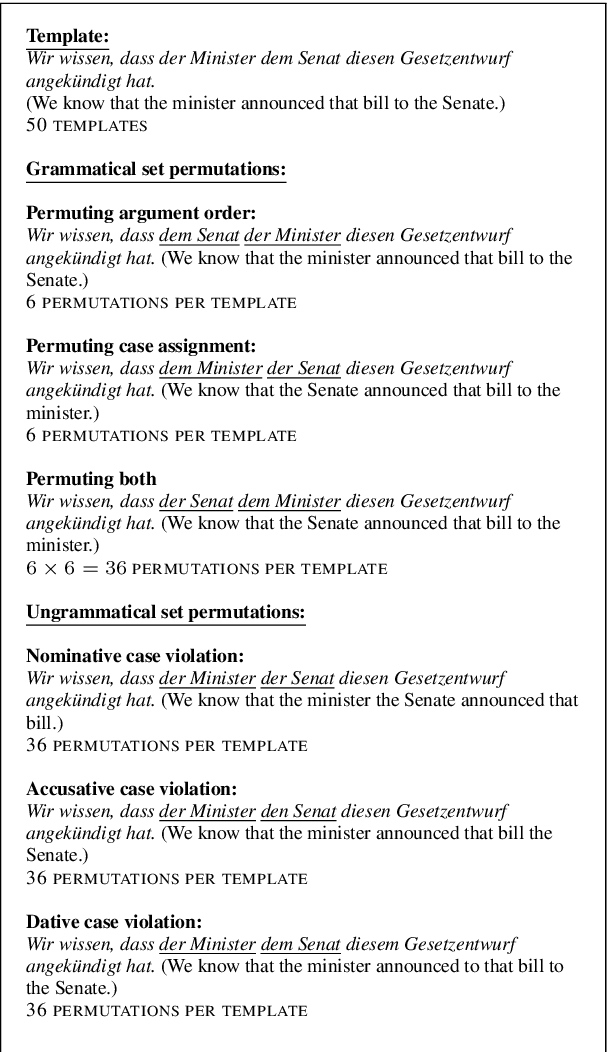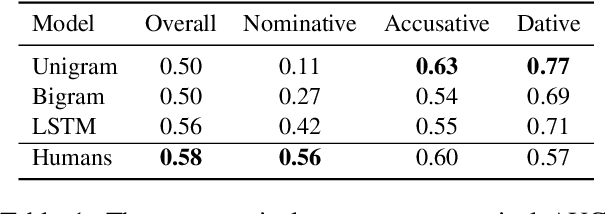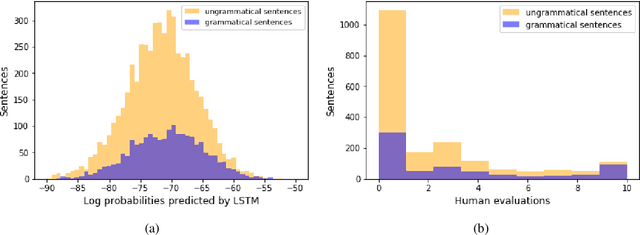Modeling German Verb Argument Structures: LSTMs vs. Humans
Paper and Code
Nov 30, 2019



LSTMs have proven very successful at language modeling. However, it remains unclear to what extent they are able to capture complex morphosyntactic structures. In this paper, we examine whether LSTMs are sensitive to verb argument structures. We introduce a German grammaticality dataset in which ungrammatical sentences are constructed by manipulating case assignments (eg substituting nominative by accusative or dative). We find that LSTMs are better than chance in detecting incorrect argument structures and slightly worse than humans tested on the same dataset. Surprisingly, LSTMs are contaminated by heuristics not found in humans like a preference toward nominative noun phrases. In other respects they show human-similar results like biases for particular orders of case assignments.
 Add to Chrome
Add to Chrome Add to Firefox
Add to Firefox Add to Edge
Add to Edge